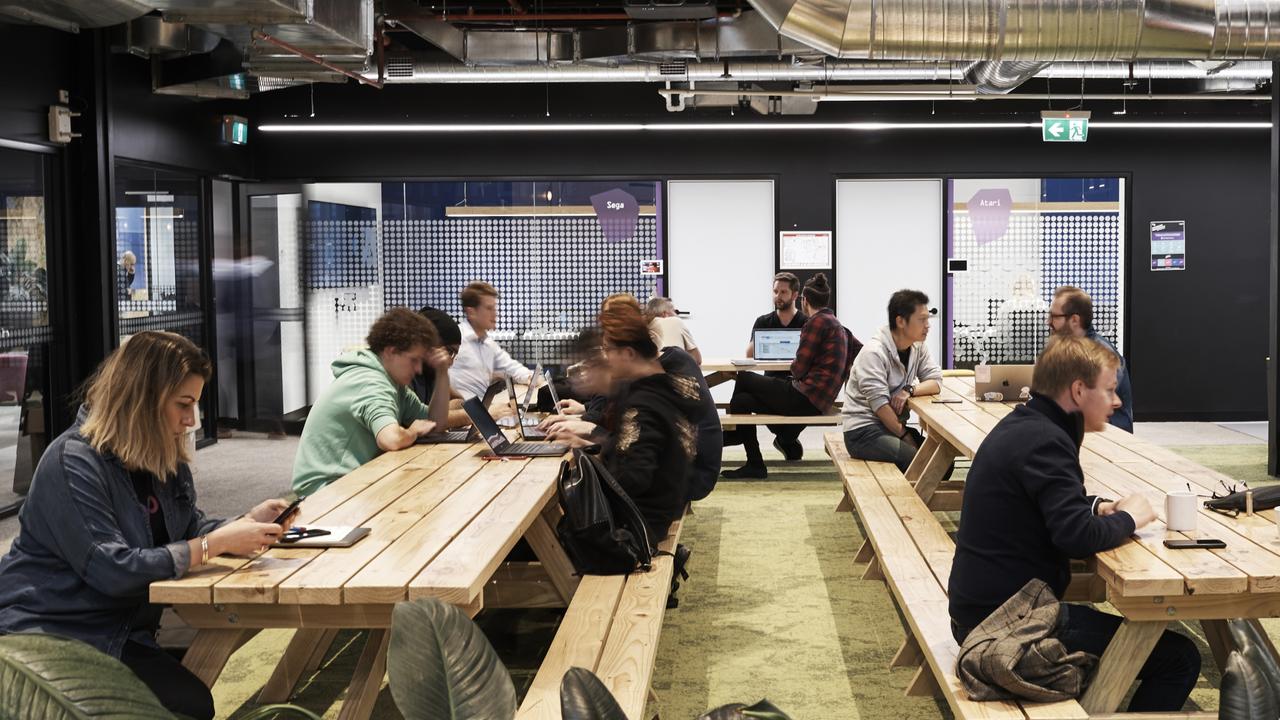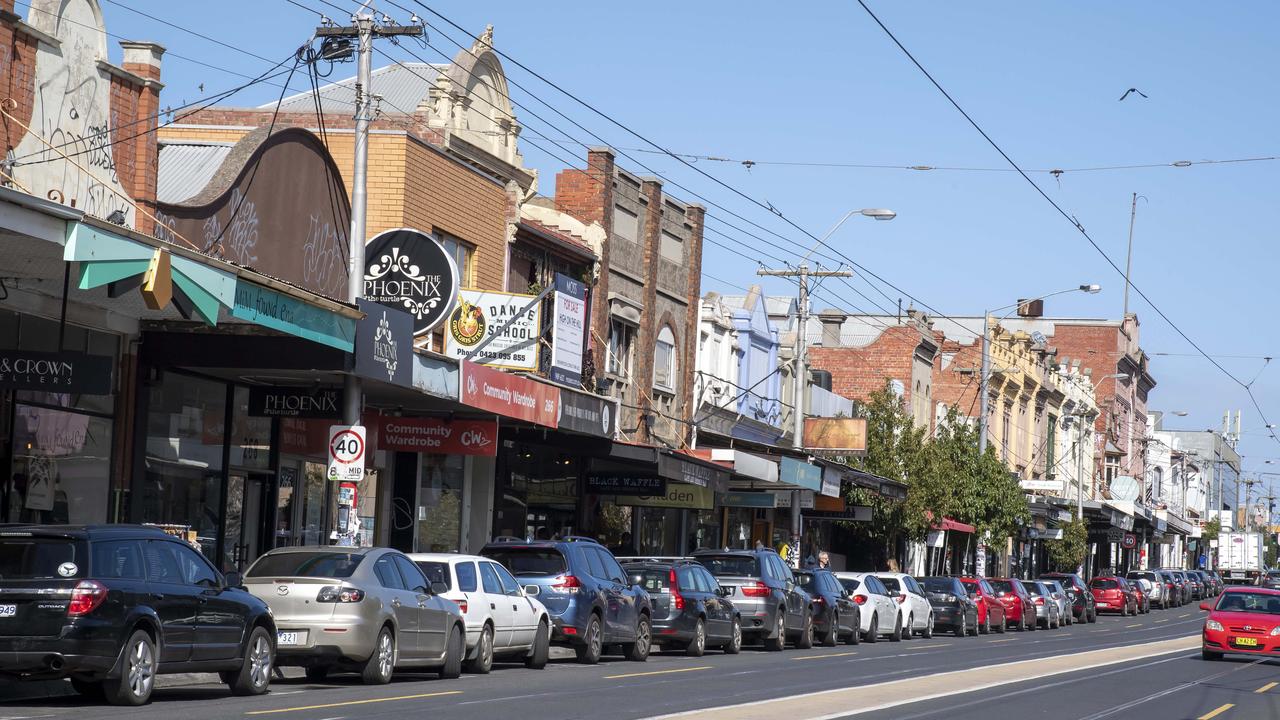Committee for Melbourne calls for review of local government system in Victoria in order to keep pace with rest of world
EXCLUSIVE: MELBOURNE’S 32 councils could be scrapped to create one super council in order to ensure our city’s future prosperity and liveability.
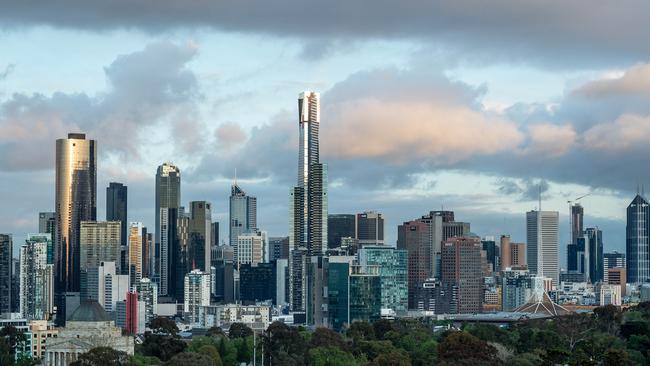
Future Victoria
Don't miss out on the headlines from Future Victoria. Followed categories will be added to My News.
More Future Melbourne:
- Driverless trains a part of expanded airshuttle proposal
- Motorists could spend extra hour commuting to work by 2030
- Hyperloop technology could make Melbourne to Sydney quicker than plane
RATEPAYERS have shown strong support for the idea of a single metropolitan council to ensure Melbourne’s future prosperity and liveability.
A Herald Sun poll of more than 2400 people showed 76 per cent in favour of a single model.
It comes after influential lobby group, the Committee for Melbourne, proposed a review of local government system in Victoria.
A “greater Melbourne council” covering the entire city, or a handful of super councils, could be created to deliver rates savings to residents and help the city thrive, Committee for Melbourne boss Martine Letts said.
“We believe a new system of local government that creates economy of scale through collaboration is essential for service delivery and sustainability,’’ Ms Letts told the Herald Sun.
“How exactly to do this requires further study. But it could be via a single council, or six separate council clusters in greater metropolitan Melbourne,” the Committee for Melbourne chief executive said.
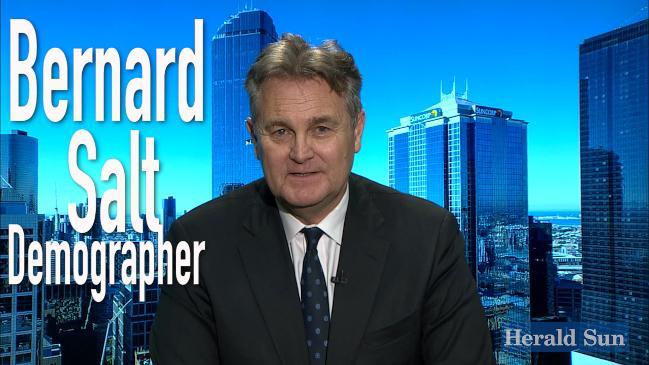
The call for greater efficiency follows the state government’s enforcement of a two per cent rate-increase cap on councils to rein in runaway spending and bloated bureaucracies weighing down some Town Hall budgets.
Almost 1000 council officers earn at least $150,000 a year, and more than 100 executives get at least $250,000 annually.
Ms Letts warned that the current system had created a divide between the inner city and outer metropolitan councils.
“A smaller number of stronger councils could alleviate this,” she said.
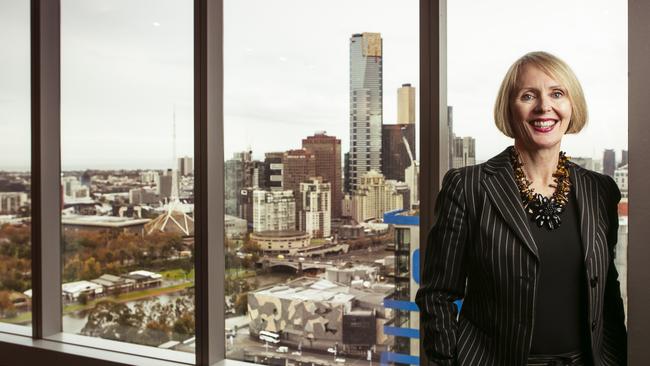
An unco-ordinated approach could leave Melbourne struggling to keep up with the leading cities of the world by 2030, the committee said.
The government has launched a plan to create six regional “partnerships” of metropolitan councils.
Suburban Development Minister Lily D’Ambrosio said it aimed to deliver better co-operation between governments, business and communities.
EDITORIAL: MEGA COUNCIL MOOTED
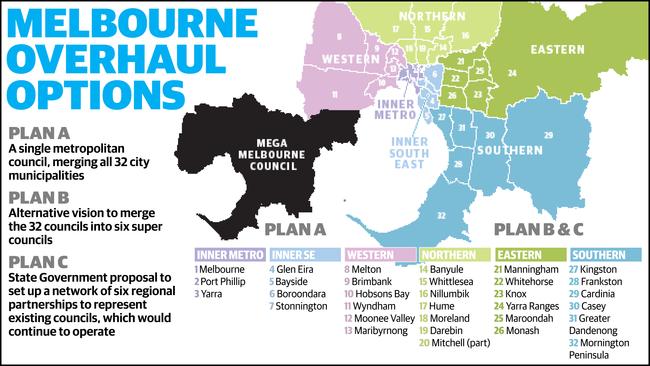
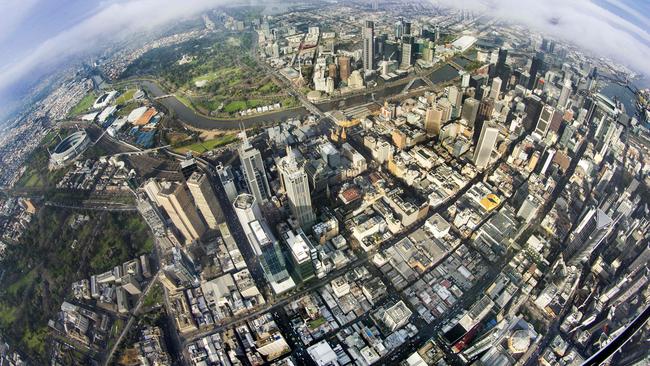
According to Committee for Melbourne research, one council, or a handful of regional councils, for greater Melbourne would be more efficient, make economic sense, and provide a better approach to housing and planning.
Many other cities around the world have a single governing body to ensure a co-ordinated approach.
Professor Michael Buxton, from the RMIT Centre for Urban Research, said Brisbane had one large council which allowed it to integrate a series of functions — social, environmental, cultural and planning.
“So in that sense, it allows for better integration. But what you lose is the quality of direct representation,’’ he said.
He said an integrated metropolitan planning authority to handle infrastructure planning, but with council input and representation, could be the answer.
“The problem at the moment is that the state government is just allowing outer metropolitan development, poorly integrated with public transport, and massive high-rise inner development, and nothing’s related to anything else. It’s badly done.’’
Melbourne Lord Mayor Robert Doyle said he did not support amalgamations because he believed that administrative efficiency was not guaranteed, and in any case should not be the sole aim.
“As we (Melbourne) get bigger and bigger, it has the effect, when you get to be that large, of destroying the community,’’ Cr Doyle said.
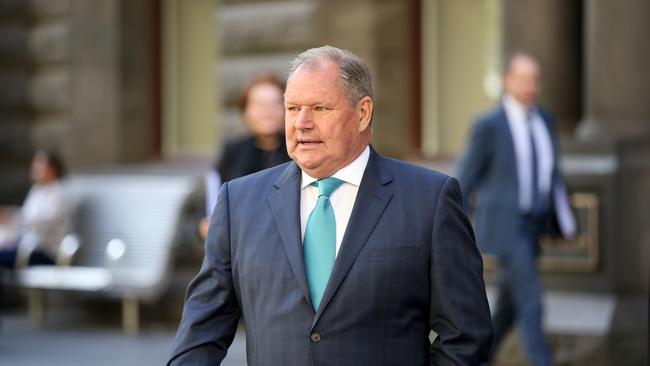
“People love their neighbourhoods. I don’t know too many people who aren’t proud of their postcode. And there’s a sense of place.
“(But) when we need to, we speak as one city.’’
He said didn’t want the City of Melbourne to be any bigger than its current 38 sq km. “We act as a capital city and that is quite a different role to what suburban councils do,’’ he said.
Local Government Minister Natalie Hutchins said there were no plans to merge councils or change their boundaries.
“Councils need to work with their neighbours to tackle the challenges of planning, housing, transport, waste and even library services, and we have seen how they can save ratepayers money by doing so,” she said.
Municipal Association of Victoria president Mary Lalios said it opposed amalgamations. “The bigger issue is infrastructure — that needs to be addressed before Melbourne continues to expand,’’ she said.

